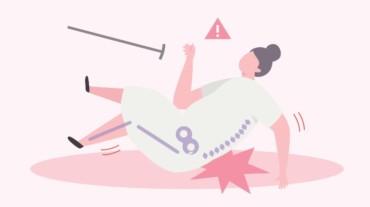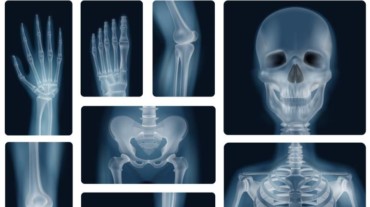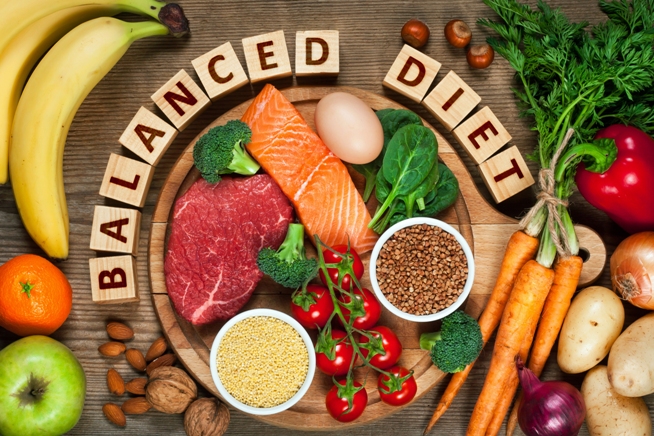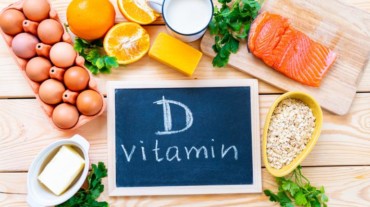
Do you often hear your mother complaining of aching back and knees? Well, it’s time to quit using pain-relieving balms and bring some changes in her lifestyle, because as she ages her risk of getting osteoporosis also increases.
We got Dr Gautam Shetty, a consultant orthopaedic surgeon at Knee & Orthopaedic Clinic, Powai and Head of Research & Clinical Excellence, QI Spine Clinic to help us understand osteoporosis and how you can help your mother prevent it.
What is osteoporosis though?
Literally translating to ‘porous bones’, osteoporosis weakens our bones and increases our risk of getting unexpected fractures. “Osteoporosis is the reduction in quantity and quality of bones,” explains Dr Shetty.
Interestingly, in a study by the US National Library of Medicine, it was found that women are at a higher risk of getting of osteoporosis than men. The research further stated that women above the age of 50 have an equal risk of dying from a hip fracture like that of breast cancer. This makes it integral for us to help our menopausal mothers to reduce their risk of this disease.
What causes osteoporosis?
Although the exact cause of osteoporosis is still unknown, we do know how it develops. Nutritional deficiencies, underlying health conditions, and/or low oestrogen levels during menopause can contribute to “porous bones”.

“To maintain calcium levels, our body starts to take it out of our bones, causing them to become weak,” explains Dr Shetty.
What are its symptoms?
A silent disease, initially osteoporosis occurs without any symptoms. Women may not know that they have it until they that sudden strain, bump, or fall that causes a fracture or a vertebra to collapse. “Most patients come with complaints of general bone pain over different joints and bones,” adds Dr Shetty.
But is it preventable?
“Menopausal women can take preventative measures to delay or prevent the onset of osteoporosis,” he says.
So, here are five steps you can help your mother take to reduce her risk of osteoporosis:
1. Get your mother’s bone-density test done
First, you must sit your mother down and calmly explain the disease to her–and how significant it is for her to reduce her risk. To give you a headstart on the process, you must assist her in getting a bone density test done. Dr Shetty shares: “Women over 45 should get a dexter and vitamin D test done to know the status of their bone health.”
Select Topics of your interest and let us customize your feed.
PERSONALISE NOW2. Make sure that she is eating a balanced diet
Sure, it sounds simple but mothers are known to not take their own health seriously. So you need to make sure that she eats a balanced diet.

“Medical studies show that people who are underweight are known to be at a high risk of getting osteoporosis,” says Dr Shetty. So if your mother has a small frame and she is on the thinner side, then you must make sure that she maintains her body weight through an adequate diet.
3. You have got to keep her calcium levels up!
Calcium and healthy bones are known to be synonymous. If your body doesn’t get the calcium it needs, it will begin to leach it from your bones. To make sure that this doesn’t happen, you must make sure that your mother gets enough calcium each day.
A study done by the Nepalese Institute of Medicine suggests that women above the age of 50 must consume 1200 milligrams of calcium every day. So ensure that she includes milk and dairy products, canned bony fish like salmon and/or sardines, dark leafy vegetables, and other sources of calcium in her diet. You can also talk to her physician about calcium supplements.
4. Make sure she gets enough of the sunshine vitamin
While calcium will help your mother maintain bone strength, vitamin D will help in the absorption of the calcium by the bones.

Although sunlight helps your body produce vitamin D, you can get it from foods too. Some of the richest sources of vitamin D are egg yolks, mushrooms, dairy, cod liver oil, yoghurt, salmon and tuna.
As our mothers might be spending most of their time indoors, you can also talk to their physician about vitamin D supplements. Although Dr Shetty adds: “Supplements are generally not needed unless you find out that you have a deficiency.”
5. Time to make her try weight-bearing exercises
Any weight-bearing exercise will force her body to resist gravity and stimulate cells to develop bone strength. Regular exercise will also increase her flexibility, in turn reducing her risk of falling, which is the highest risk of developing a fracture.
While making her work with dumb-bells is not the wisest choice, you can start by encouraging her to do brisk walking, aerobics, yoga, dancing, or just climb the stairs if her knees can take it.